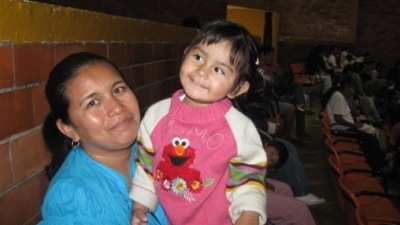Challenge
When a crisis hits, the chronically poor are most at risk of suffering irreversible losses. Because they have fewer strategies to mitigate the crisis, such as accessing more credit or seeking out more work, they have to reduce consumption of food, or other basic needs, and investments in education, thereby further reducing their long-term earnings potential. Even after the crisis passes, the poor have difficulty reversing these losses in nutrition, earnings, and education.
With a demonstrated ability to reach a large number of the poor with a positive impact, Oportunidades was central to the Mexican Government’s domestic policy response to the global economic crisis of 2008; but, financing the social spending needed to increase benefit payments and expand the program’s coverage was challenging, given increasing fiscal difficulties associated with the 2008 crisis.
Solution
The World Bank-funded Support to Oportunidades Project was designed to support the country’s flagship conditional cash transfer program Oportunidades to improve household consumption, school attendance, and health and nutrition of the poor. Project design combined a cash grant with conditional support to beneficiaries component, with technical assistance to strengthen program impact. The technical assistance, directed at forging stronger ties with the health and education sectors, went beyond immediate crisis response; it fostered support for improved program quality and greater impact on the well-being of its beneficiaries. Technical assistance support expanded during implementation through grants and Bank-financed analytical and advisory services, which supported knowledge services in such key areas as program targeting, coordination, social protection, and governance.
Results
The Project improved access to health and educational services of poor families, and built sustainable connections between Oportunidades and other social programs to improve outcomes. Results included the following:
- Coverage increased from 5.2 million families to 5.9 million between 2009 and 2013.
- The percent of students who transitioned from primary to lower secondary education increased from 82% in 2006 to 90% in 2013.
- The percent of students who transitioned from lower to upper secondary education increased from 56% in 2006 to 69% in 2013.
- The number of Oportunidades schools participating in the Ministry of Education’s school-based management program Programa Escuelas de Calidad increased from 24,955 in 2006 to 28,944 in 2013.
- The number of Oportunidades beneficiaries with tertiary education scholarships from the National Scholarship Program for Higher Education (PRONABES) increased from 36,941 in 2008 to 68,181 in 2013.
Global knowledge: Over the years, often with Bank support, the program has contributed immensely to global knowledge sharing their experience through a number of South-South exchanges with countries in Latin America (Brazil, Colombia, Honduras, Ecuador and Peru among others), Europe (Turkey and Croatia), Asia (Philippines, Bangladesh and India among others) and Africa (South Africa, Tanzania and Malawi among others).
Bank Group Contribution
The Bank supported Oportunidades with US$2.75 million in lending and US$1.3 million in related technical assistance provided through trust funds and programmatic analytical work. This included US$0.26 million from the Spanish Fund for Latin America and the Caribbean (SFLAC). The technical and financial assistance enhanced the Government’s crisis response capacity while strengthening Oportunidades and its long-term effectiveness (targeting, coverage, quality, and links with other services).
Partners
The Inter-American Development Bank (IADB) provided a multi-year conditional credit line of up to US$2 billion and technical assistance. The Bank and the IADB coordinated joint supervision missions to ensure full alignment and to maximize the level of technical assistance.
Moving Forward
The Program remains highly relevant within the Government’s priorities for social policy. It is expected to continue expanding, with the goal of reaching 6.5 million beneficiaries by 2018. Along with this increased coverage, the Government assigns high priority to scaling up and consolidating its strategy to link beneficiaries with social and productive programs, helping them capitalize on opportunities for income generation. In addition to the Government’s political and financial commitment to Oportunidades, it has requested a new World Bank Loan to support the redesign of the Oportunidades, now called PROSPERA Social Inclusion Program, with the objective of further improving its impact in this new priority area.
Beneficiaries
Conversations with beneficiaries reveal how Oportunidades is supporting the families’ investments in their own human capital. Zenaida, mother of five girls, explains how, through education and better nutrition, her daughters’ outlook on life has improved. Thanks to the program, they are all studying: the youngest is starting secondary school and the older sisters have already moved onto university.
Participation in Oportunidades also allowed Rigoberto to continue with his studies, something he could not have done otherwise. With many sacrifices, determination and some help by Oportunidades, today he is fulfilling his childhood dream of becoming a professor.

